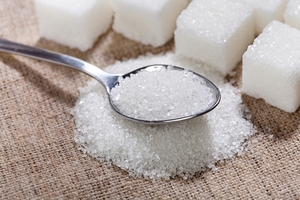New report shows further sugar reduction progress by food industry
Soft Drinks Industry Levy data shows a 28.8% reduction per 100ml in retailer own-brand and manufacturer-branded products.

Public Health England (PHE) has published its second-year report on progress made by the food industry to voluntarily reduce sugar in everyday foods.
The report shows the sugar reduction achieved by retailers and manufacturers (in home sector) and the out of home sector (including restaurants, pubs and cafes) in foods contributing the most sugar to children’s diets, such as cakes, breakfast cereals and sweets.
The report shows:
- for retailers and manufacturers, there is an overall 2.9% reduction (sales weighted average sugar per 100g) since 2015
- for the out of home sector, based on more limited data, there is a 4.9% reduction (simple average sugar per 100g)
However, some food categories have shown greater progress. Retailer own brand and manufacturer branded yogurts and fromage frais, and breakfast cereals have reduced sugar by 10.3% and 8.5% respectively.
When looking at simple average sugar levels, data suggests that the out of home sector has made more progress; however direct comparisons should not be made due to the data available.
The report also looks at progress made under the Soft Drinks Industry Levy (SDIL). The data shows:
- a 28.8% sugar reduction per 100ml in retailer own brand and manufacturer branded products and a 27.2% reduction per 100ml for drinks consumed out of home
- there was a consumer shift towards zero or lower sugar products, with sugar purchased from soft drinks decreasing in all socio-economic groups
- 30,133 tonnes of sugar were removed without reducing soft drink sales, resulting in around 37.5 billion fewer kilocalories sold in sugary drinks each year
Duncan Selbie, Chief Executive of Public Health England, said:
We are seeing some encouraging progress from the food industry. Our second year report shows some food categories reducing sugar faster than others but this is realistic at this early stage.
We are confident that the industry as a whole understands their responsibility to step up and deliver for children and their families.
A third of children leave primary school overweight or obese, while severe obesity in Year 6 children has now reached an all-time high.
To help them play their part in addressing this, businesses have 3 options to meet the 20% ambition: reduce sugar levels (reformulation), produce smaller portions, or encourage consumers to purchase lower or no sugar products.